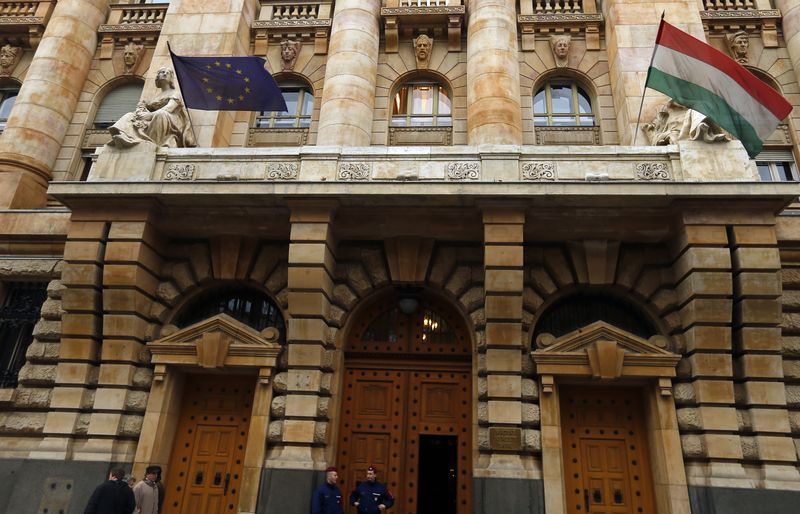BUDAPEST (Reuters) - Hungary's government will have five years instead of the current eight days to reimburse the National Bank of Hungary (NBH) in case the bank posts a loss on its operations, according to a bill published by the Ministry of Finance late on Friday.
Hungary's budget deficit has ballooned this year after a spending spree ahead of April elections, and with soaring energy prices and additional gas purchases from Russia contributing to expenditures.
The proposed amendment to the law regulating the operation of the NBH would allow the government to spread out payments to the bank into five equal sums over a period of five years, easing the immediate burden on the state budget.
The NBH posted a loss of 200.9 billion forints ($497.44 million) in the first half of 2022 alone, as its interest rate costs soared and balance sheet had expanded.
The goal of the proposed changes is to "ensure the central bank has adequate capital while lowering risks to the budget at the same time," the Finance Ministry said in the legislation.
If the National Bank of Hungary makes a profit then it will pay 50% of that to the government as dividend, it added.
The central bank did not immediately reply to questions from Reuters on the proposed changes.
The Ministry of Finance said last month that Prime Minister Viktor Orban's government lifted the 2022 deficit target to 6.1% of economic output from 4.9%.
In order to rein in the deficit, the government announced hefty windfall taxes on banks and certain large companies in May. It also scrapped energy price caps for higher usage households since August.
($1 = 403.8700 forints)
